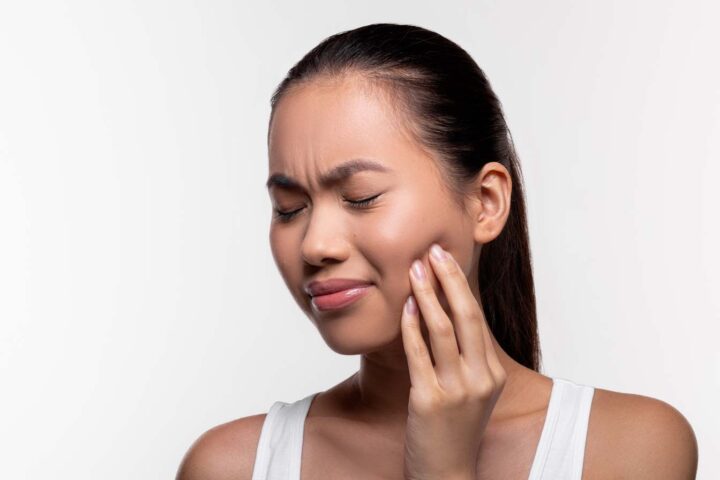Are you afraid of the dentist? Well, you are not alone.
Here at Smilefocus we understand that dental phobia is real. Although 99.9% of our patients do enjoy a stress-free experience with us, some patients struggle with their phobia, from shaking to more extreme reactions. We can help you address your dental phobia.
We’ve put together some useful information on dental phobia and discuss the following:
- Why people fear the dentist
- Tips to overcome fear of the dentists
- How to make your dental visits a pleasant and enjoyable experience
- How you can cure dental phobias in children
First and foremost, we’ll start on why some people are afraid of the dentist.
Fear of the Dentists
We’re sure that if you bumped into our dentists while strolling along Orchard Road, Dr Bernard or Dr Hannah for example, you wouldn’t be afraid or terrified one bit. They are friendly people who love a laugh, but the moment they put on their gloves and a mask, they suddenly become fearsome to dental phobics. But why are phobics afraid of the dentist?
The 5 most common reasons include:
Bad Childhood Experience
Most dental phobic people develop their anxiety in early childhood, usually dating from an unpleasant episode with a dentist. Perhaps they were treated roughly, or perhaps treated with little care to the pain they felt. Some of the Smilefocus dentists have their own horror stories from childhood, and that’s why they became dentists – so others didn’t share their experiences!
Serious Treatment Due to Neglect
Some people with dental phobia may be afraid to visit the dentist because they think sharp instruments, and drilling of the tooth, are essential components of any visit to the dentist. So, because of this, they will avoid visiting the dentist at all.
Unfortunately, prolonged neglect of your oral health may increase the risk of serious gum infections and cavities, so when a phobic person finally makes it to the dentist’s chair, some serious treatment will be required, which may further upset them. As a result, these individuals will avoid the dentist again in the future.
Feelings of Helplessness
There are also patients, especially those suffering from PTSD or Post-Traumatic Stress Disorder, who feel vulnerable the moment they sit or lie back on the dentist chairs. They dread not knowing what is happening around them during treatment and not having full control of the situation makes them feel exposed, defenceless and helpless.
Anxiety Disorder
Dental phobia may also be caused by an anxiety disorder that is non-dental related. Feeling anxious about not knowing what to expect at the dental clinic or whether they have cavities and infections may lead to patients having negative thoughts and feeling nervous. They may also feel that it is probably better to be unaware of their oral health condition rather than knowing what’s wrong.
Embarrassment & Lectures
Embarrassment is probably the most common concern voiced by our patients. Some patients are so ashamed with the state of their teeth that they avoid the dental visits all together. They are also worried about being judged, maybe even berated, by a lecturing and hectoring dentist. Dentists like this are very rare in modern dentistry.
There may be other reasons apart from the above which we will touch upon soon. As for the above causes, you will need to address the following and face your fear head on:
- You may have been suffering from dental phobia for many years or just a few months, before you can overcome this issue, you will need to first admit that you are indeed afraid of the dentist.
- List down your reasons for this particular fear.
- Ask Yourself. Ask yourself if you can overcome this fear on your own. Or if you need professional help.
- With a proper plan in place, it is easier to tackle this issue and we‘ve put in a few ideas to help ease your fears of the dentist.
Get To Know Your Dentist Beforehand
You may only know your dentist as the person who mostly wears a mask and works with a set of dental instruments and a drill. Get to know and chat with the person behind the mask for 10mins before treatment. Ask him/ her questions and be upfront about your dental phobia. This small talk or conversation may help you feel more relaxed.
Get Someone to Accompany You
Bring someone who understands your fear to the dentist appointments. They can help you stay calm and provide you with the comfort you need during treatment. In some practices, your companion may have to remain in the waiting area but knowing they are nearby will put you at ease. At Smilefocus we do have a professional counsellor with experience in dental phobia who can be coordinated with your appointment.
Plug In Your Headphones
The dentist’s drill is one of the most well-known tools in dentistry but unfortunately the fear it can engender is excessive – worse even than chalk scrapped down a blackboard. The high pitched, whirring sounds may be heard as far as the waiting area and to have the drill directly over your mouth may be a terrifying experience for some. To distract yourself, just plug in to your headphones and listen to some music to drown out the sound of the drill.
Pain Management Options
If fear of pain is causing you to avoid your dentist, you can inform them about this so that they will understand where your anxiety is coming from. Most dental practices offer several pain management options such as the use of laughing gas, topical anesthetic, oral or intravenous sedation to numb the affected area as well as other alternatives,you will feel more at ease.
The Dentist Chair
If you feel uncomfortable or vulnerable having to lie back in the dentist chair, your dentist can accommodate you by reclining the chair only halfway during check up. Alternatively, you can put pillows where you feel aches when lying flat on the chair.
Smilefocus understand dental phobia is real and we won’t dismiss your fears. We’ll work closely with you to understand your concerns and fears which we will take into consideration during an appointment. We will also explain all the treatment, procedures and options beforehand to help you feel more relaxed.











